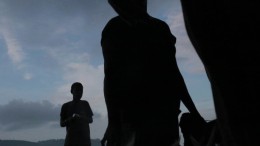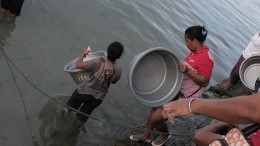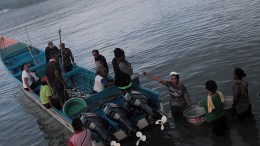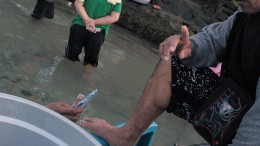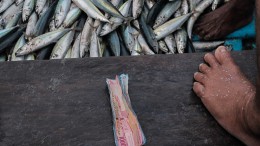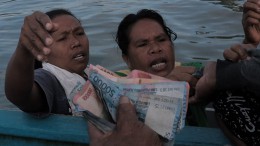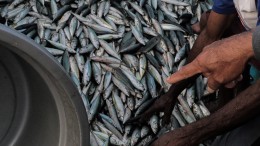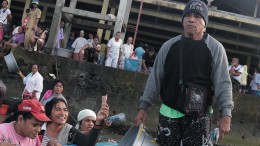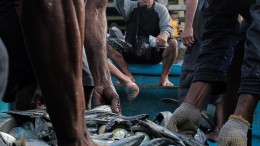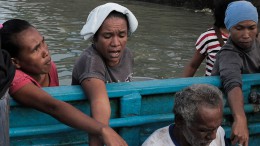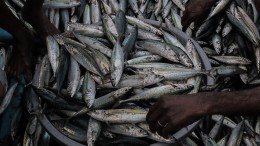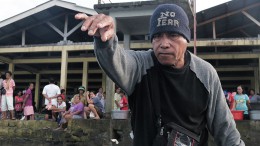Bapa Latu
Photo essay ― Every Wednesday there’s a morning market on the Island of Saparua. A small island in the Banda Sea. Early in the morning villagers are visiting the marketplace. It is a social event that reaches beyond the island. Villagers from surrounding islands [the islands: Nusalaut, Haruku and Seram] are also trying to attend the market, where the fishery comes alive.
Local women are waiting on the wharf for the fresh catch. On this particular Wednesday a fishing motorboat, the bapa latu, arrives from Nusalaut island. Immediately, with many “theatrical gesture”, the captain shows his catch and makes the price per bucket public. The trade has started. In these photos, a fascinating spectacle is shown, the women and the captain are bargaining about the catch. Literally, these women are verbally fighting for the best offer. Eventually they paid 500.000 Rupiah [At that time, around 32 euros] for each bucket, what for the islanders a large amount is. After the trade, each of them will sell the fish again in their village or at the market.
To an outsider the game between visitors and fishermen could be interpreted as a dispute between people. But in fact, it’s a weekly scene where they are doing business as usual, whilst people on the wharf are enjoying the spectacle. For these fishermen, this trip to Saparua is not without risk. The Banda Sea is one of the deepest seas in the world, where the force of surface currents can be exceptionally strong during the wet season. [July 2014]
Side note: Bapa Latu refers to an official adat title – the name of the fishing boat is socially defined, so is the captain from a chief family Hehanussa from Titawaai village, Nusalaut island. During the bargaining the women were joking about the name of the boat, so the captain said proudly but at the same time, ironically: “I am Hehanussa, we are the ‘Bapa Latu’.” In other words, his family provides the village chiefs but at the same time in this given context he sets the prices for the catch.
